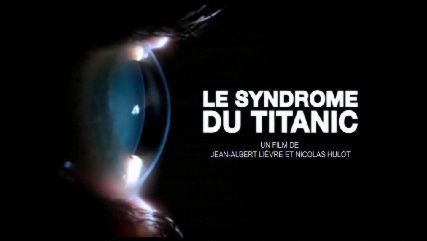İşletmeciliğin gerek şartı zihniyet değişikliğidir.Etkinlik ve verimlilik işletmeler için çok önemlidir. Etkinlik, alternatifler arasından doğru tercihler yapmak verimlilik ise yapılan tercihleri doğru bir biçimde işletmektir.İşletmelerde ana amaç öncelikle kar değil sağlıklı büyüme olmalıdır. Kar`dan önce sağlıklı büyümeye odaklanılmalıdır."Titanik sendromu", "kayık sendromu" ve "Pompei sendromu" na kapılmamak gerekir. Titanik gemisi gibi (ben büyüğüm ve güçlüyüm batmam) fikrine kapılmamalı, kayık sendromunda olduğu gibi de (ben küçük bir kayığım çok kolay batarım) diye düşünülmemeli. İtalya`nın Vezüv yanardağının lavları altında kalan turistik kenti Pompei`nin başına gelenler de hizmet sektörünün başınıza gelmemesi için önlem alınmalı. Sinerjik ortaklık kültürü oluşturulmalı, iletişim verimliliği artırılmalı. Bunların yapılması halinde krizden en az zararla çıkılabilir.> Prof. Dr. Nurullah Genç
"Titanic Syndrome" warns of catastrophe
"The Titanic Syndrome," the directing debut of French environmental program-maker-turned-eco-campaigner Nicolas Hulot, is a cinematic attempt to wake viewers up to the calamitous future we're arguably heading for if we don't change our ways.The titular syndrome is simple: Our planet is the doomed oceanliner, and we -- in the West, at least -- are all busy leading our more-or-less luxurious lives as we sail toward cataclysm. It's obviously not the first film in recent times to put forward the case for safeguarding Earth, but it promises to look at the issue from a bold perspective."We're at a crossroads of crises: An energy crisis, a food crisis, an economic crisis," Hulot observes. "We have to look at ourselves as we really are. Our model is not sustainable. It's this model, based on competition and accumulation, which is the source of much disorder. We have to change and everyone has to be part of that, including those in the developing world.""Syndrome" is the first documentary venture from Paris-based producer Mandarin Cinema, best known for commercial comedies like "Brice de Nice." The company backed Hulot's project "quite simply because it interested us," explains Eric Altmayer, who runs Mandarin with his brother Nicolas."Syndrome" is no filmed lecture or argument put forth by global experts. Narration is sparse, and it sets out to make its point through the power of images that highlight what Hulot calls "the society of waste." For example, cars being torn up in a breaker's yard juxtaposed against the opulence of the Tokyo Motor Show, and children in Nigeria picking over mountains of discarded electronic equipment to eke out a living from recycling metal."We haven't filmed nature seen from the sky, the beautiful landscapes, the glaciers melting, the land drying up. We've tried instead to film the absurdity of the conflict between man and nature," Altmayer says.Shooting began in September 2007, and involved more than 28 weeks of filming on every continent. For such a mammoth shoot, the movie has a relatively modest budget of about $8 million (4.5 millon pounds)."It's a truly ecological budget, because it uses all the expertise and experience of Nicolas' production team for his TV programs, in particular co-director Jean-Albert Lievre, who has brought us some sublime images," Altmayer says. "They have connections in all the countries where we've shot. We're shooting on HD with a light crew, and we're quite proud to be producing a film that will have very high production values without it costing a huge amount of money or using huge resources."Hulot is one of France's highest-profile environmental activists, thanks mainly to his long-running nature show "Ushuaia," which is broadcast on TF1 and has now spawned its own cable channel. Having flirted with a run for office, his first foray into cinema is unapologetically political, though not, he says, ideological."My hope is that this film will question our model of growth. It's not a matter of ideology, it's a matter of physical laws," he says. "Our planet is not growing, but what we ask of it never ceases to grow. At some point, we have to find a balance between what Earth can provide and what we need."Hulot is specifically aiming to change behaviour through his film, notably consumption. "The film shows to what extent we have been conditioned by a materialist society," he says. "We have to recondition ourselves. That doesn't mean go toward a society of deprivation, but one of moderation."A possible premiere at the Berlin International Film Festival in February would be the place to test how persuasive Hulot's argument will be.Reuters/Hollywood Reporter
What might be termed the ultimate disaster movie involves no special effects whatsoever.
Kaynak:


















Hiç yorum yok:
Yorum Gönder